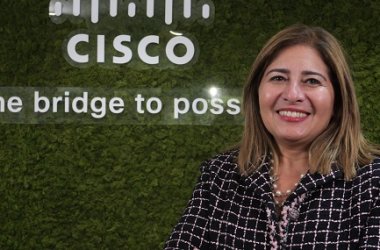Maysa Salameh, regional channel manager, Infoblox, on the cloud security landscape.

The past 20 months have accelerated the hybrid work culture, which means data increasingly being stored on cloud servers and accessed through home network. Could you tell us a little about how Infoblox has supported clients in navigating these challenges?
DNS & DHCP are fundamental core network services that are mandatory for the operation of any user whether this user is located at office, working from home or anywhere. Infoblox is the leader in enterprise grade DNS security and DDI (DNS, DHCP & IPAM), which are very crucial components in enabling organizations to embrace these new technologies in a way that is simple, reliable, scalable, and secure. As the leading provider of DNS security as well, Infoblox is able to offer the necessary visibility, security and control at scale on those services enabling clients to scale in such an emerging architecture.
There are numerous tools and services available today to bring cybersecurity in-house. How can CISOs determine what capabilities should be in-house and what should be outsourced?
Many networks grew in response to emerging technologies and changing demands leaving cybersecurity without a unified master plan to follow. IT professionals and CISOs remain concerned about security, governance, and compliance issues, making it critically necessary for companies to manage their security operations and to place them under one umbrella. With this being said, it is important for CISO’s to identify their business’ growth and the impact on the technology in order to determine what security controls are necessary, where are these supposed to be located and how are they supposed to be monitored, managed and administered.
Can you share your thoughts on the changing landscape and current challenges around API security and management?
The increasing shift toward the digital transformation has accelerated the adoption of orchestration and cloud technologies. API is a foundational component in analyzing and monitoring the users cloud access and activities. These environments are changing with new applications and new capabilities which create new challenges for the organizations to ensure their security tools and strategy to identify vulnerabilities, pinpoint and block the attacks successfully, companies become exposed to breaches if not carefully protected. Embracing API focused security is extremely important to maintain this journey.
Where do you see the cloud-security landscape in the next 5-10 years?
During the Pandemic, without the cloud it was nearly impossible for businesses to continue operating as they did.
Globally, in the coming few years the cloud will continue to underpin businesses and communication like never before. However, the need for meeting regularity and compliance needs is increasing due to the changing business needs, data breach and cyber-attacks are now a serious issue across the world.
Improving the cloud-security has become a vital task and creates the opportunity for more innovation to protect the business operation. Cloud-security will continue with more robust and resilient, more automated than now, driven by AI, machine learning and other technologies. It will be designed and implemented toward a positive user experience by making cloud solution models more secure and effective toward more business productivity. And it will be considered a critical part of any security system, something that is built into the foundation of any security architecture to leverage the simplicity, scalability, and visibility that these systems will require.





